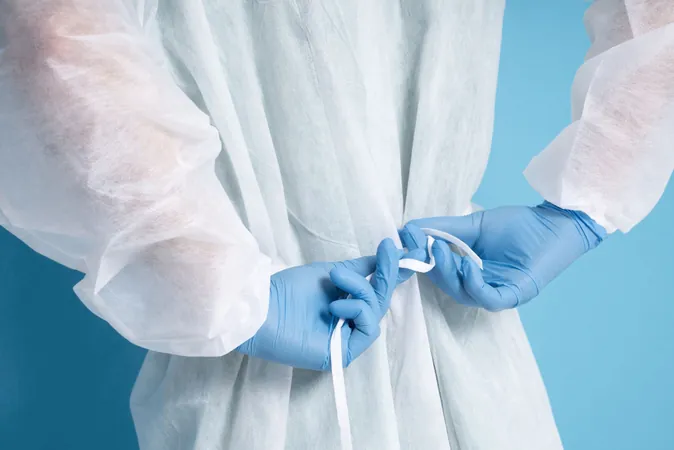
Shocking Tragedy: Michigan Patient Dies After Receiving Kidney from Rabies-Infected Donor
2025-03-31
Author: Olivia
In a heartbreaking incident, a Michigan transplant patient has succumbed to rabies after receiving a kidney from a donor unknowingly infected with the virus. This tragic turn of events has raised serious concerns over organ donation protocols and the rare but dangerous potential for rabies transmission.
Incident Overview
The incident took place in December 2024 when an unidentified recipient in Michigan received a kidney from a donor. Disturbingly, the donor had been exposed to a rabid wild animal in Idaho just weeks before their passing. Sadly, they did not exhibit common symptoms of rabies and did not seek medical help prior to their death, which occurred in January 2025 in Ohio.
Health Officials' Insights
According to health officials, while 99% of human rabies infections stem from dog bites or scratches, organ transplants occasionally pose a risk for transmission. Although organ donors in the U.S. undergo extensive screening for various infections, rabies is not typically included in routine tests, leaving a gap in safety measures.
Responses and Reactions
In response to the situation, the University of Toledo Medical Center assured the public about the rarity of rabies transmission between individuals, emphasizing that this case is "extremely rare." There have been documented instances, but they remain isolated and unusual, contributing to the concerns among the health community.
Impact on Other Recipients
The ramifications of this event extend beyond the kidney transplant. Together with the kidney, corneal grafts from the rabies-infected donor were also implanted into three other patients across different states. In light of the potential risks, the CDC collaborated with Missouri health authorities to halt the implantation of a fourth corneal graft based on alarming symptoms observed in the kidney recipient.
Current Health Status
Fortunately, all corneal transplant recipients have since received post-exposure prophylaxis (PEP) and are in good health, assuaging initial fears of a wider outbreak. In an effort to contain the situation, the CDC has reached out to close contacts of both the donor and the deceased recipient, advising them to undergo rabies PEP as a precaution.
Public Health Advisory
Despite the gravity of the situation, health officials have reassured the public that there is no immediate risk to community safety. They urged the importance of vaccinating pets against rabies — a key preventive measure — and advised anyone bitten or scratched by an animal potentially carrying the virus to seek prompt medical intervention.
Conclusion
This tragic case highlights the necessity for enhanced screening processes in organ donations to prevent similar situations in the future. Awareness is crucial, as rabies, once symptomatic, can rapidly advance to a severely life-threatening stage. Thus, vigilance around potential animal exposures remains paramount in safeguarding public health.









 Brasil (PT)
Brasil (PT)
 Canada (EN)
Canada (EN)
 Chile (ES)
Chile (ES)
 Česko (CS)
Česko (CS)
 대한민국 (KO)
대한민국 (KO)
 España (ES)
España (ES)
 France (FR)
France (FR)
 Hong Kong (EN)
Hong Kong (EN)
 Italia (IT)
Italia (IT)
 日本 (JA)
日本 (JA)
 Magyarország (HU)
Magyarország (HU)
 Norge (NO)
Norge (NO)
 Polska (PL)
Polska (PL)
 Schweiz (DE)
Schweiz (DE)
 Singapore (EN)
Singapore (EN)
 Sverige (SV)
Sverige (SV)
 Suomi (FI)
Suomi (FI)
 Türkiye (TR)
Türkiye (TR)
 الإمارات العربية المتحدة (AR)
الإمارات العربية المتحدة (AR)